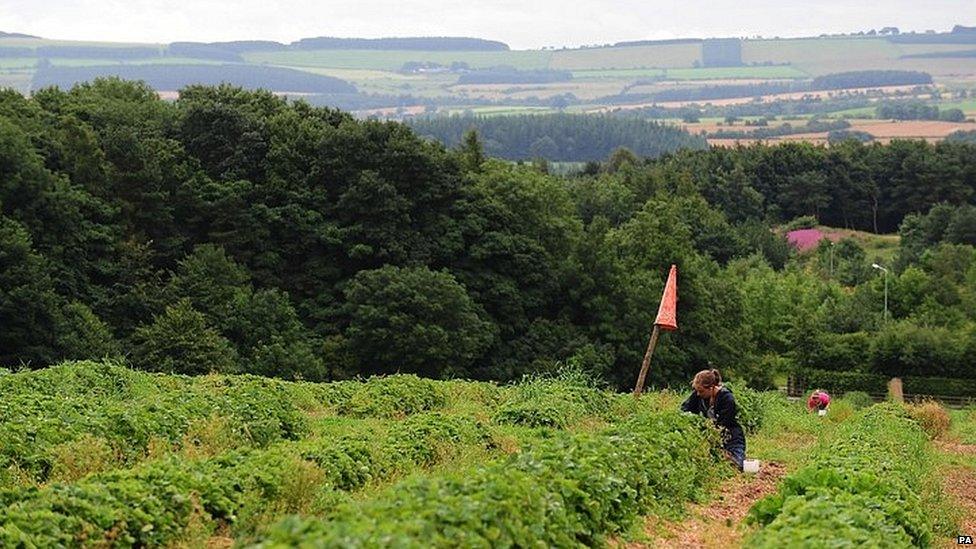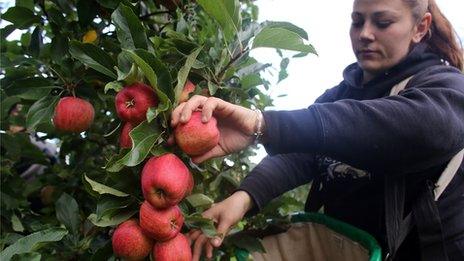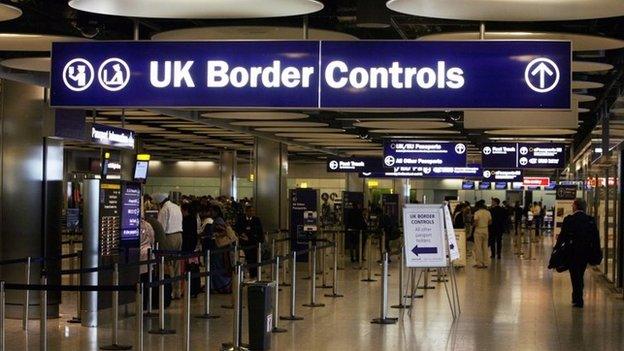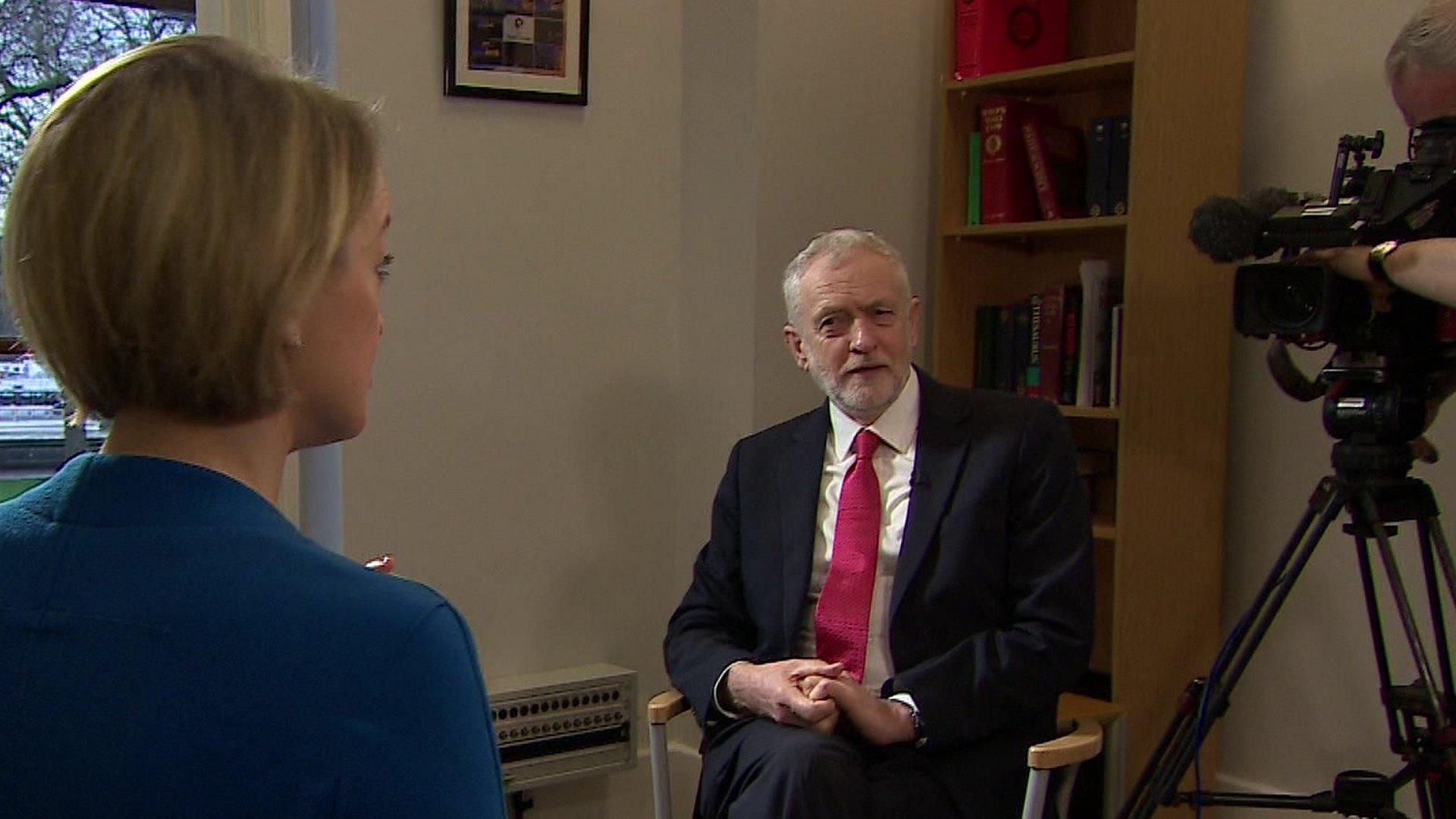Brexit: Minister hints at £1,000 fee for EU workers
- Published

Farmers are worried about the availability of seasonal labour after Brexit
Companies could be charged to hire skilled workers from the European Union after Brexit, Immigration Minister Robert Goodwill has suggested.
A £1,000 immigration "skills charge" is being brought in this April for firms recruiting workers from outside the EU.
Mr Goodwill told peers a similar levy for EU workers "may be something that has been suggested to us could apply".
One business group said the idea had "raised eyebrows" while a top European politician said it was "shocking".
But Downing Street said Mr Goodwill's remarks had been "misinterpreted" and such a levy was "not on the government's agenda".
The government says the decision to leave the EU will give the UK greater control over its borders but British firms are concerned about their capacity to fill vacancies, particularly for low-paid seasonal work, if there are limits on migration from the EU.
'One option'
Appearing before the Lords EU home affairs sub-committee, Mr Goodwill referred to an annual £1,000 charge on businesses for every skilled worker they employ from outside Europe, which will take effect in two months time.
The levy, which applies to workers in "skilled areas" but with exemptions for PhD-level posts, is designed to reduce firms' reliance on migrant labour and encourage them to train more local workers.
"That's something that currently applies to non-EU," the MP said. "That may be something that's been suggested to us that could apply to EU."
Home Affairs Correspondent Danny Shaw said Mr Goodwill had raised the question of the charge himself rather than in response to questioning from MPs, suggesting he wanted to "float the idea".
Mr Goodwill also suggested a seasonal scheme to enable agricultural workers, such as fruit pickers, to come to Britain for short periods was a possibility, telling MPs "that's certainly one of the options that could be open to us post-Brexit".
The National Farmers Union supported such an idea for workers from outside the EU, he added.
About 60,000 seasonal workers come to the UK each summer, mainly from eastern Europe, and ministers have said British farmers must continue to have access to a supply of labour after the UK's exit.
Between 2007 and 2014, UK firms were allowed to employ a certain number of fruit pickers from Bulgaria and Romania for a six-month period but this scheme expired when transitional work restrictions on the two countries following their entry to the EU were lifted.
'Pandering'
The government has said it remains committed to reducing annual net migration to less than 100,000 a year although it has consistently failed to meet the target, with the figure remaining above 300,000 for the past 18 months.
In the year to June 2016, a record number of EU citizens - 284,000 - came to live in Britain.
Many Conservative MPs want a level playing field for EU and non-EU workers, believing Brexit is an opportunity to end the preferential treatment EU workers currently receive in the immigration system.
But former business minister Anna Soubry - who backs the UK staying in the EU's single market - said a levy would be a "tax on successful businesses".
"Discouraging EU nationals from coming to Britain would harm our economy, deterring investment and hitting our public finances," she said.
Former Belgian prime minister Guy Verhofstadt, who is leading the European Parliament's Brexit team and is a strong supporter of the continued right to free movement across Europe, tweeted: "Imagine, just for a moment, what the UK headlines would be, if the EU proposed this for UK nationals? Shocking."
The Federation of Small Businesses said it had been assured by the Home Office that Mr Goodwill was only referring to the imminent levy on non-EU workers.
A spokesman added: "The priority for small businesses is to make sure that current EU nationals in the UK workforce are given the right to remain."
- Published4 January 2017

- Published1 December 2016

- Published10 January 2017
